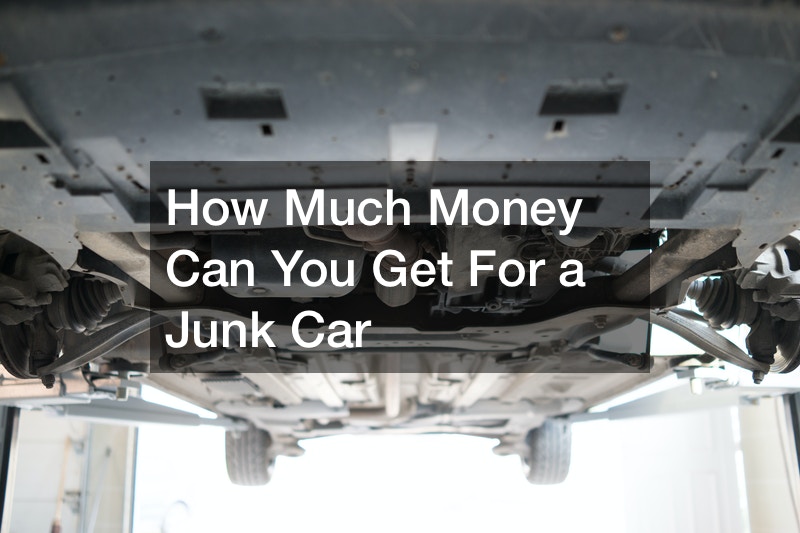
The world of automobile enthusiasts is growing fast, and the daily transport needs have also risen. For this reason, the need to own a car at a cheaper cost in the modern world has boosted the used car market. However, numerous myths have surrounded buying used cars for years. While your business or family needs may be pushing to invest in a car, it’s essential to first distinguish between fact and fiction, especially in this era of information overload. This article debunks the commonly held beliefs about buying used cars.
Inspections Aren’t Necessary

Although notary services protect new car owners from fraud, a thorough car inspection is necessary. Yes, the services will validate the identity of the car seller and the paperwork as part of the process. But in this era of technology, most information can be altered. Used car inspection service before purchase will save you thousands of dollars.
Obtain the opinion of a knowledgeable technician before starting the transaction process. Only a visual inspection by a professional can reveal issues that an untrained person may not see. Mostly, a used car may have structural damages, engine issues, or signs of previous accidents that can affect its performance.
Assessing all the mechanical components is also necessary before purchasing a used car. It’s wise to check the engine components. The car’s transmission system is also a vital component of the powertrain. Leaking transmission fluids is the first sign of a damaged transmission system. Additionally, check how the gears shift at different driving speeds and note any noise from the system.
Other mechanical components include the brakes and the suspension. Identify the level of wear and tear and compare it to the mileage and the service reports issued. If the damage level is high and the instrument cluster displays low mileage or the service reports indicate the components are serviced, you must inquire about the reason.
What else about the inspection? You get the peace of mind, knowing you’re investing in a vehicle that meets your requirements. An inspection also gives you negotiation power because you’ll have the information about the car’s condition. You may request the seller to fix the issues or adjust the selling price to account for the repairs. Skipping the inspection is one of the commonly held beliefs about buying used cars you should unlearn.
Don’t Buy From Private Sellers
Dealerships are trusted businesses and have the best offers. Their transaction processes are also transparent, especially if the company is registered through legal processes. Over the years, exaggerated prices and running insecure transactions have been the most commonly held beliefs about private sellers. While some private sellers may practice unclear processes, a reliable seller may benefit you greatly.
Private sellers offer lower prices than dealerships because they have no overhead costs of running the dealership or paying the employees. Private sellers also know the market is competitive, and auto dealers are more trusted. As such, they’ll offer more competitive prices to attract clients.
Private sellers always look for quick sales because of various factors like parking space. Aiming to make quick sales makes them more willing to negotiate the prices compared to dealerships. The negotiation flexibility can land you the best deals as a buyer. Also, with the private sellers, you avoid the dealer preparation and the documentation fees.
Lastly, private sellers have simplified transactions because their paperwork preparation is more straightforward. Buying from private sellers may also lead to long-term relationships for future purchases. Private sellers may also refer you to various car mechanics who can give you better car repair offers than the dealerships.
Only Go For Low Mileage
It’s typically a rule of thumb to go for a car with low mileage because it has less wear and tear. Also, a low-mileage car has an active warranty. Most of the manufacturer’s warranties range from 60000 miles to 100000 miles, according to Forbes. Low-mileage cars also qualify for better financing options, saving you money on monthly installments and interest rates.
While low-mileage cars might carry loads of benefits, it doesn’t mean high-mileage cars are bad. Worn-out parts and poor performance are some commonly held beliefs about high-mileage cars. First, high-mileage cars have lower price tags. In reality, most car manufacturers recommend major car servicing between 30000 km and 45000 km. Basically, you should do a major serving after every two to three minor services.
Major servicing is more detailed and includes more replacements of wearable parts. During major servicing, mechanical components like the oil and water pumps are replaced. Pollen filters, fuel pumps, timing belts, and other components are changed. Additionally, most auto shops offer major servicing as a package, with auto detailer service included. This restores the car’s exterior and interior beauty.
Replacing all these components and restoring the car paint is like giving it a new lease of life. A well-serviced, high-mileage car will give you the best performance. All new components come with impressive mileage that will give you confidence and peace of mind behind the wheel.
Dealerships Won’t Do Discounts

Higher dealership fees and no discounts are other commonly held beliefs about buying used cars from dealerships. Used car dealerships give discounts ranging from 1% to 3%. If you need a discount with the dealership, you must have strong negotiation skills and, secondly, do perfect timing. Dealerships offer discounts at the end of the year to give space for the new year’s stock.
Warranty is another benefit because it covers some repairs. If your warranty expires, and you have established a good relationship with the dealership, you get better service discounts from their auto repair shop. Note these discounts may vary depending on the complexity of the service. For instance, a car wheel repair service may have less discount than a major service.
A History Report Will Tell You Everything
Believing the history report provided by the seller will reveal everything about the car is one of the commonly held beliefs that lands new buyers into trouble. There are limitations and potential issues you should be aware of. A vehicle history report may lack information about all the incidents the vehicle was involved in. For example, if the car was involved in a collision and was not reported to the insurance company or the authorities, the details will not be updated on the history. These instances happen when one car owner lacks insurance coverage and agrees to pay auto body garages from their pocket. Ultimately, you’ll have an incomplete picture of the car’s history if you purchase it.
A fraudster seller can manipulate the car title to change the branding. Some cars are branded titles like “salvage” after a write-off in some states. However, these sellers may do slight repairs and sell them with a clean history report. Mistakes made during vehicle history recording can also cause inaccuracies in the report. Hire a professional mechanic to inspect the vehicle’s condition before transactions.
You Can’t Resell a Used Car
Difficulty reselling a used car is one of the oldest and most commonly held beliefs in the used car market. Reselling your used car privately can earn more than selling it through a dealer. While many secondhand car owners find it hard to resell their cars, approaching it with some knowledge and good preparation can make the process easier.
Yes, dealerships are recognized brands, and new car buyers trust them easily. To make a sale, take a step to prepare the vehicle history, including the service reports. The second step is to visit a local auto repair shop to ensure your car is well-serviced and all the mechanical parts function properly.
The internet era has made it easier to reach millions of potential buyers easily. Once you have prepared the car for sale, you can post it online and explain all the features. However, sometimes you may find it hard to sell the vehicle if:
- You have a loan on the car you are reselling.
- You have a loan on the car, which exceeds its value.
- You have found a buyer but need an auto loan to complete the transaction.
- Your buyer needs to sell another car to afford to buy yours.
It’s Simple to Return a Used Car

If you’re used to purchasing new cars from manufacturers or dealerships, you understand warranties cover repairs, and the return policies are straightforward. In the case of used cars, it’s different for various reasons. Some include a lack of better consumer protection rules.
The buyer is responsible for the car’s condition after the purchase. The seller throws the term As-Is to indicate ahead of time they’ll not be responsible for any collision repair or faults that develop within the car system. Also, used cars have expired or limited warranties, and less coverage than new cars. This makes it harder to return the used car to the seller.
Used cars may have hidden problems you’ll not notice at first. These problems may arise after the purchase, making it difficult to prove the seller knew about them before the purchase. Used cars also lose value and depreciate with time, making it harder for the seller to accept them back.
The complexity of used cars makes it harder to return them to the sellers. That being said, avoid the commonly held belief that you can return a secondhand car by thoroughly inspecting it before purchasing. Otherwise, if you discover the car doesn’t meet your needs afterward, you’ll have to fix and resell it.
Used Cars Are Hazardous
Safety and performance are the key features buyers check when purchasing a car. If the used car has been properly maintained, you don’t have to worry about its performance. Thoroughly check all the paperwork to ensure the car has no hidden damages from floods, accidents, and other incidents that can downgrade its performance.
Although the used car market is gaining popularity, as Statista reports, there are commonly held beliefs that age determines performance. The age doesn’t affect the car’s performance. If the engine and transmission repairs or servicing is done professionally, the car performs excellently.
Older cars might need modern safety features like airbags or advanced braking systems. But note these are systems designed to assist the driver and enhance the driving experience. If you’re careful while driving, your safety is guaranteed. Otherwise, you can set a budget and upgrade the safety technology features of your car.
You Must Pay With Cash
You’ve heard the old saying “cash is king” applies to all purchases. In fact, cash can be one of the most straightforward payment methods for many car buyers. But it’s important to note cash payment isn’t the only option accepted by the used car dealerships. Dealerships accept cheques, wire transfers, and even hire purchases.
With the growing used car market and the rising competition, dealerships have devised various payment terms to attract more buyers. This has made it easier for many people to purchase their dream cars. It’s not only the dealerships who have come up with impressive marketing strategies; financial institutions also have smart strategies. They’ll offer auto repair loans to pay auto body or a tire shop if you lack emergency cash.
Unlike a few private used car sellers who prefer cash, modern businesses accept any transaction method. Cash as the only accepted payment method for used cars is one of the commonly held beliefs with people lacking information or wanting to carry out fraudulent deals. Although cash transactions are good, electronic transactions are safer because you can track spending.
It’s Best to Shop Online

Shopping for a used car online is the best move because you can easily do comparisons. However, believing online shopping is the only best option ranks as one of the commonly held beliefs in the modern used car market. Referrals are also the best method because you’ll visit the dealer or private seller well assured of quality services.
Most businesses prefer various marketing methods, including referrals. For example, a dealership or a car repair shop will prefer their past customers to refer new customers to their business. Referrals help form better relationships because customers gain trust before visiting the business.
While myths about the used car market persist, understanding the market and how various processes are carried out reveals a different truth. It’s crucial to do thorough research, vehicle history checks, and professional inspections before making a purchase. Unlearn these commonly held beliefs about used cars.



